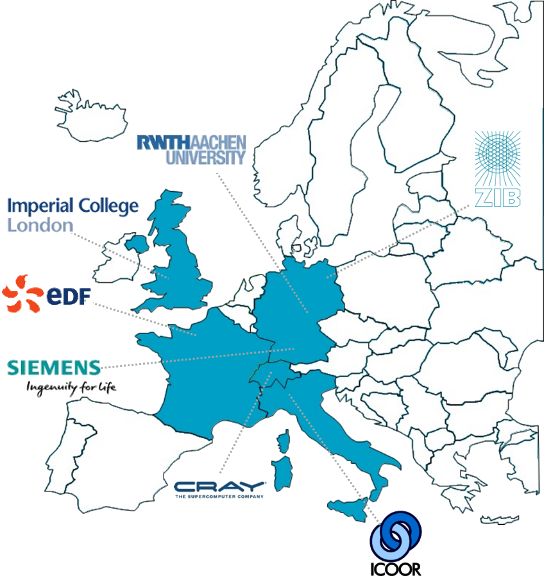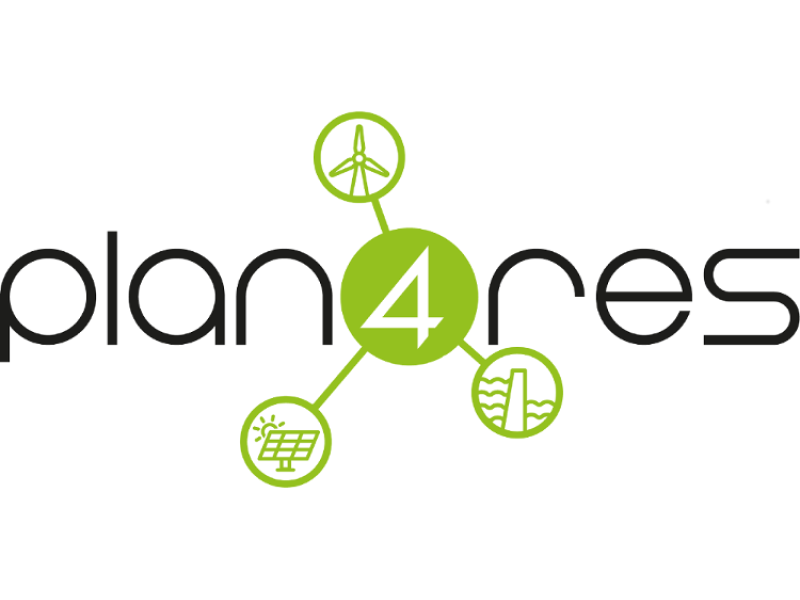The 2030 and 2050 EU’s carbon reduction targets are calling for significant changes in our energy system: more flexibility, more active involvement of all stakeholders and more collaboration to enable least-cost integration of higher deployment of variable renewable energy sources.

Seven partners, among them market actors, energy system experts, mathematical optimization academics and computer science specialists, joined in the plan4res consortium with the objective of filling the gaps between the increasing complexity of the future energy system planning and operational problems, and the currently available system analysis tools. The consortium is composed of Electricité de France (France, Project Coordinator), Siemens AG Corporate Technology (Germany), Cray Computer GmbH (Switzerland), RWTH Aachen (Germany), Imperial College London (UK), Zuse Institut Berlin (Germany), and Interuniversity Consortium for Optimization and Operation Research (Italy).
Operating the electricity system with the targeted high shares of renewable energy sources (RES) will only be possible and affordable if both the grid and the generation assets evolve towards a system designed to maximize its capacity to host such amounts of RES. This requires optimizing existing assets and new investments, making the best use of all flexibilities (considering geographical location and which services they provide to the system) and developing new services to support the energy system. We believe that an integrated representation of the system is necessary to achieve European climate objectives in a cost effective way, for all the stakeholders participating in the system operation and development.
However, such an integrated representation will require overcoming significant technical hurdles in order to allow a set of different but highly interconnected models (strategic investment – operational simulation – multi-modal system integration) to work synergistically while retaining the modularity (possibility of representing only sub-parts of the system, either functionally, geographically or on a specific time horizon, with a specific time resolution, or replacing every model and algorithm by another one) which is necessary for tailoring the tool to the different needs of various stakeholders.
The main deliverables of the project will be :
1- An end-to-end planning and operation tool, composed of a set of optimization models based on an integrated modeling of the European Energy System, including
- Dynamics of energy system development and transformation, in particular with and without perfect foresight
- A representation of the interactions of multi-modal energy vectors and the impact on available flexibility
- A subnational representation of the grid and potential cross-border energy exchange
- A realistic dispatch with precise technical description of all generation assets (including hydro storage)
- A representation of the new challenges of the grid facing large shares of RES, e.g., frequency stability
- A proper representation of flexibility needs and flexibility potential provided by all assets including multi-energy services
2- An IT platform for providing seamless access to data and high performance computing resources, catering for flexible models (easily replacing submodels and the corresponding efficient solution algorithms) and workflows
3- Efficient solving algorithms that are developed and improved for plan4res applications, used for enhancing the existing solvers including SCIP, and fine-tuned for increasing solution performance of plan4res models. Related studies include:
- Linear and mixed integer programming: Problem-specific primal heuristics for time-indexed MIP formulations, model specific-parameter tuning of SCIP, extension of SCIP to exploit modern shared-memory architectures through parallelization
- Optimization under uncertainty: Workable methods for large-scale multi-stage stochastic programming (MSLP), enhanced SCIP using new algorithmic techniques for solving MSLP, next generation of StOpt's SDDP software
- Decomposition: Improved decomposition algorithms fulfilling the needs of extremely demanding plan4res applications
4- A database of public data used for modeling
5- Three case studies showing the tool’s functionalities and relevance regarding the above-mentioned uses, especially key advances included in plan4res: multi-energy integration, investment planning under uncertainties, flexibility cost integration within a pan-European approach. The case studies are listed below:
- Multi-modal European energy concept for achieving 21st Conference of Parties - Paris Agreement goal on CO2 (COP 21) goal with perfect foresight, considering sector coupling of electricity, gas, heat and transport demand
- Strategic development of pan-European network without perfect foresight and considering long-term uncertainties
- Cost of RES integration and impact of climate change for the European Electricity System in a future world with high shares of RES
